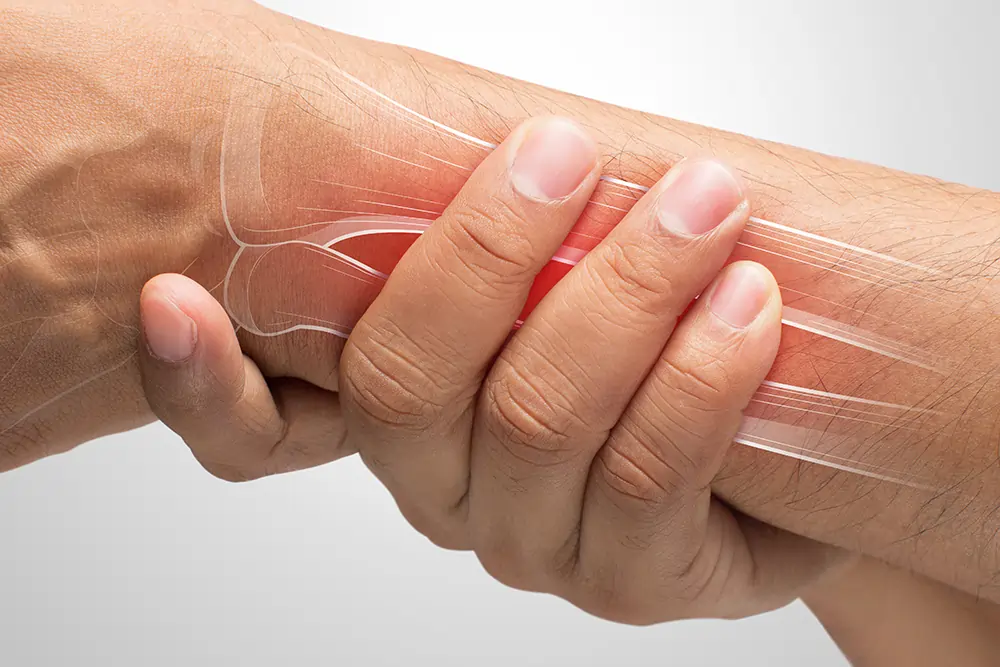The Effects of Smoking on Bone Health
The effects of smoking on bone health cannot be ignored, regardless of age.
The years between childhood and the age of 30 are ideal for increasing bone mass. “Adolescents who smoke will not develop their full bone mass. They will have a smaller skeleton and less bone mass than nonsmokers “says Primal Kaur, MD, an osteoporosis specialist at Philadelphia’s Temple University Health System.

In your 40s and 50s, smoking continues to harm your bone health. Women of that age begin to lose estrogen, which is essential for bone health. According to Kaur, smoking causes faster bone loss and more complications.
Damage of Smoking on Bone Health
“Nicotine and toxins in cigarettes have a wide range of effects on bone health,” says Kaur.
Cigarette smoke produces massive amounts of free radicals, which attack and overwhelm the body’s natural defenses. As a result, a chain reaction of damage occurs throughout the body, including cells, organs, and hormones involved in bone health.
Toxins disrupt the balance of hormones (such as estrogen) that bones require to stay strong. According to Kaur, your liver produces more estrogen-destroying enzymes, which leads to bone loss. “Smoking accelerates bone loss during the menopausal years. It contributes to the already existing bone loss.”
According to Kaur, smoking causes other bone-damaging changes, such as increased levels of the hormone cortisol, which leads to bone breakdown. “Research also suggests that smoking interferes with the hormone calcitonin, which aids in bone formation, so that hormone cannot do its job.”
There’s even more: “Nicotine and free radicals kill the osteoblasts, which are the cells that make bones,” she explains. “Smoking also damages blood vessels, resulting in insufficient oxygen supply in the blood. Smokers suffer from multiple fractures. According to studies, when a smoker suffers a fracture, the fracture does not heal well due to a lack of blood supply.”
Smoking damages blood vessels and nerves in the toes and feet, which can lead to more falls and fractures. “Smokers are twice as likely to suffer a fracture. Heavy smokers are at a higher risk of fracture “According to Kaur.
According to the experience of Dr. Nader Motallebizadeh, smoking can disrupt the process of bone formation during the treatment period of height increase surgery.
If You Quit Smoking, Is It Possible to Improve Bone Health?
“Because bone building is a slow process that takes a long time to repair, some of the damage may be irreversible,” Kaur says. “The longer it takes to recover, the heavier the smoker.”
But there is still hope. She cites a recent study published in the Journal of Women’s Health in 2006: A group of postmenopausal women with improved bone density after one year of not smoking compared to women who continued to smoke.
How do you begin if you want to stop smoking?
“I’ve known people who have given up on lifelong habits,” says Murray Dabby, LCSW, director of the Atlanta Center for Social Therapy. He is a former smoker who has helped many people quit smoking.
“You learn to phase it out and cut back,”. “You discover that you don’t require it as much as you believe.”
Set a quit date and stick to it, say the experts. Obtain assistance. Obtain and apply medication. Be prepared for relapse.
Also, make a plan for what you will do instead of smoking. It’s an important part of quitting.
According to Dabby, a therapist who has helped many people overcome addictions, smoking is a habit as well as a statement about your lifestyle.
“Our habits aren’t trivial,”. “They are an integral part of how we live our entire lives. It is a big decision to give up smoking. It’s not just about quitting smoking. It is about making the decision to live our lives differently. It is about making the decision to live a healthy lifestyle.”
Consider your relationship with cigarettes as you prepare to quit smoking, he suggests. Consider the typical times you smoke: after a meal, during a break, after sex, first thing in the morning, and when you get into your car.
Then, flip the script. “Don’t smoke when you normally would. Alter the timing. Wait 10 or 15 minutes after eating before smoking. Allow yourself to be in the midst of an anxious moment; wait until you’re relaxed before smoking. Wait an hour before lighting up in the morning.”
This step eases you out of habits while not depriving yourself immediately, according to Dabby. “You’re discovering how it affects you. Do you really require a cigarette first thing in the morning? You discover that you don’t require a cigarette after a meal, and that if you don’t smoke, you can actually taste your dessert.”



